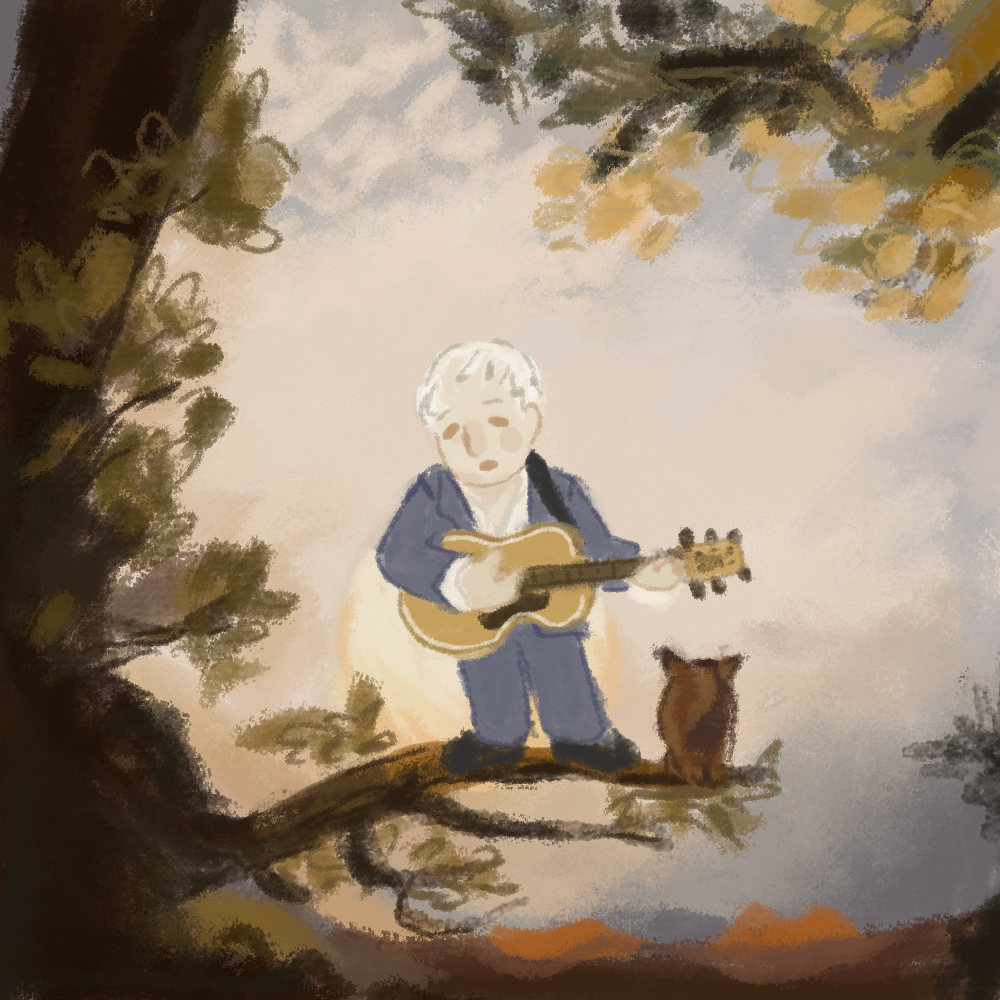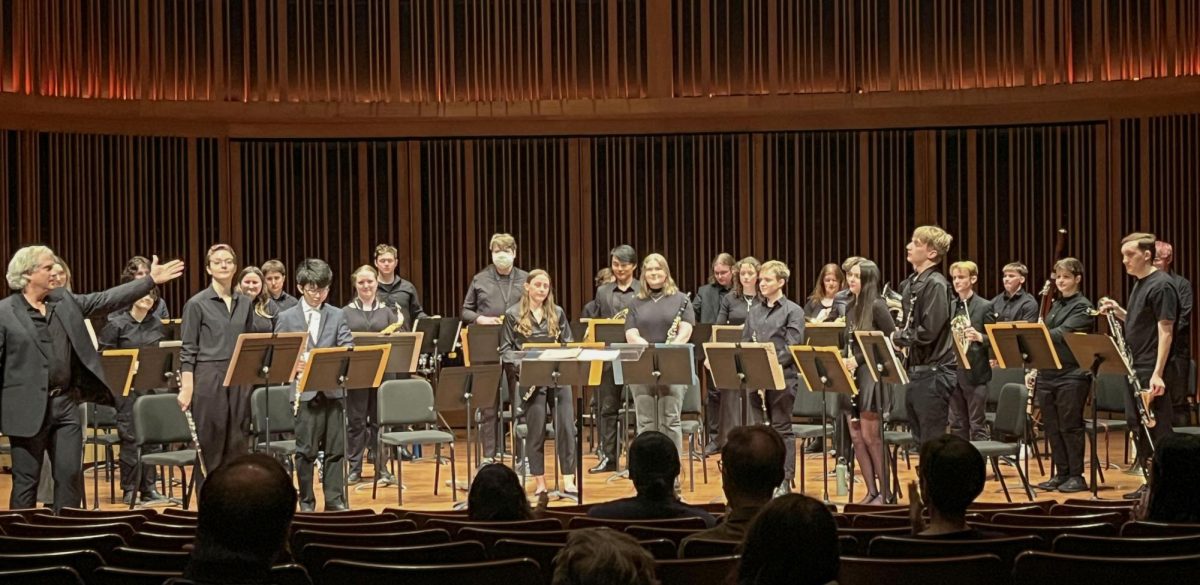Jack Weatherford is worried about the weather in Minnesota. He’s returning to the state for the first time in four years on Thursday, March 3, to deliver the Inaugural David W. McCurdy Distinguished Lecture in anthropology. Weatherford taught here for 25 years as a professor of anthropology, but he left all of his winter clothes in Mongolia, where he spends half of his time these days.
The Mac Weekly sat down with Weatherford to discuss his controversial new book, Genghis Khan and the Quest for God: How The World’s Greatest Conqueror Gave Us Religious Freedom. The following is an abridged version of our conversation, in which we talked about the revolutionary pedagogical methods of David McCurdy, another Macalester Professor Emeritus of anthropology who pioneered the ethnographic method and influenced Weatherford. Also discussed: Genghis Khan’s inner thoughts, Ben Franklin’s (arguable) early Amazon prototype, serendipity.
TMW: As someone who’s gotten to know Genghis Khan a little bit through historical accounts, how would you characterize him?
JW: First, he was the world’s greatest conqueror, so he was a warrior in his everyday life. But at the same time he was also a great law-giver, and that’s the part that’s overlooked. Everybody knows about the warfare, but they don’t realize how much time he spent trying to create laws for his new country. The Mongolians speak of him that way, as a great law-giver and the father of their country.
Without giving too much away, what would you say are the cornerstones of your argument in this new book?
I think the most important — and probably the most controversial, it would be rejected by a lot of scholars — [is] the point about the influence of Genghis Khan’s law on Thomas Jefferson, and the drafting of the first law of religious freedom in America. The founding fathers, principally Thomas Jefferson, were inspired by Genghis Khan. Even George Washington, throughout his whole life, kept a book on Genghis Khan in his library. Benjamin Franklin sold a number of books about Genghis Khan — these are things I never would’ve guessed in my life! Benjamin Franklin was selling books on Genghis Khan. It was almost like the early Amazon — you had no post office, no printing press, no advertisements and he would ship these books anywhere in the 13 colonies. It’s just amazing. [Laughs]
What left you unsatisfied about your last book [Genghis Khan and the Making of the Modern World] that drove you to write this one?
When I wrote Genghis Khan and the Making of the Modern World, it’s really about material things: about trade, about how to make steel, tile, press, gunpowder. That’s what that book was about, but I knew that there was a deeper level, a more spiritual, intellectual and just a more soulful level. I didn’t have the information then, it took me another 12 years to really get the rest of the story, and now I feel like I have the rest of the story. At least, I feel [laughing]. I could be wrong but that’s my feeling. I’ll leave that to other people to decide.
You studied political science as an undergrad, and you’re an anthropologist by trade — why the shift to studying history in Mongolia?
I can’t answer that, truthfully. I mean, I can say things but I’m not sure that there’s an answer. I was interested in Genghis Khan when I was a kid, but you know you’re interested in many things as a kid. I did apply to go to Mongolia as an undergraduate, but we had no diplomatic relations, and I applied again as a graduate but was turned down. So I went on with my life. And then in 1990 when communism collapsed and Mongolia began to open, it opened up an opportunity to go to Mongolia and return to my earlier interests. I really thought I would not do anything with it — it was just curiosity at that point — but it all came back. I fell in love with the country; it felt like I was a 12-year-old kid again reading the biography of Genghis Khan and seeing the camel caravans go by. I just fell in love, and I can hardly say it any other way. And I’m waiting for it to pass [laughing]. I’m still waiting to get over that crush or whatever you want to call it. It’s been 18 years.
In anthropology we talk about this notion of serendipity, in terms of where we study and our topical focuses once we arrive. Do you agree with this notion? How has it impacted your work?
In a certain way yes, but I think also there was a pattern there all along, and I just circled back to an earlier childhood interest. Why I had that interest as a child, I do not know. It’s some very deep thing within me throughout all my life that has come up during certain times when circumstances permitted it to come up. Now a Mongolian, I suppose, would say that maybe there’s a spiritual connection there, that maybe I had been born there at one time. That’s their way of looking at it.
That’s beautiful, especially considering the degree to which you now are embraced by contemporary Mongolian culture. Could you speak to how that happened?
I really learned a lot from David McCurdy. I learned how to systematically think about how other people think — not just to want to think like them, or empathize with them, but how to break down their categories of thought. I learned a certain amount of how to think like a Mongolian, and then apply that even retrospectively to how to think like Genghis Khan. You look at his words, you look at his deeds, and you try to think, what are his categories of thought, how does he divide up people, what kind of people are there in the world in his opinion, and what are the different strategies that he uses, how many of them are there? Once you learn that kind of thinking about people, it really informs the work. I think that was one crucial part.
The other crucial part was just going there. I was the first biographer who was able to go there and just stand in those places, be in those places in Mongolia. I think you absorb a lot just through your feet, it comes into you somehow: walking that land, breathing that air. You begin to feel it come alive. So then for me as an anthropologist, the greatest compliment is that Mongolians embraced the work so deeply. I expected it, but I just thought they would like it, I didn’t expect how deep it was going to be. And how that has also affected my life, how I’ve been embraced by that country.
How do you feel about being lauded as a “contributor” to Mongolian culture, not just a recorder of it?
[Laughs sheepishly] Hearing you say it, it sounds like they’re overstating things in a way — for me, part of it is I’ll just say good luck, or coming at this moment when Mongolians needed to hear their story again in a fresh way. There’s nothing original in my work, at one level; I’m looking back at the work they have, at old ideas. It’s new to a lot of people because they never heard it or saw it, but it’s also new to the Mongolians, because for 70 years under socialism they were denied all information that was positive about their history. Everything before the socialist revolution was bad, and Genghis Khan was bad, and so I was writing a story that they wanted to say but could not yet articulate, I think.
Even doing the writing, I tried to use metaphors that come out of Mongolian language. I tried to use a certain style that nobody would see, hardly — [so] even writing in English, write it in a style that would resonate with a Mongolian literary style. So then the people, they just sense it, even if they can’t exactly put their finger on it. They see it and they feel it. And it becomes very important to them. The whole book has been put into poetry in Mongolia, it’s a huge epic.
How has your view of history changed, if at all, after spending time in Mongolia and seeing how Mongolians interact with their history?
Certainly it has changed a lot. Part of it [is], I have realized very firmly how every single document that we have is always a totally biased account in some direction or another. There are no objective documents, and they must always be interpreted with great care. That’s where I think historians are sort of limited; they mostly compare documents with documents, and I took those documents and went to the places. So sometimes by standing there in the place, for example, where Genghis Khan [stood] — you get there and sometimes you can see [why he chose a certain strategy]. So these documents need to be interpreted with what’s on the ground.
But also, a second part, going back to the comment about David McCurdy, is figuring out the things that they don’t say because they so take it for granted. Often that’s some of the most important information. We don’t explain our most ingrained thoughts, or our habits of thinking in American culture and the English language because we share it with other people. For me that was a very important and a hard part, to figure out what was important in what was not being said, in some cases of what was being censored. The missing parts are very important: what’s missing from the document, what’s missing from the assumption in the words? And that’s where David McCurdy’s techniques for understanding cognition and how people think helped me a tremendous amount.
Don’t miss Professor Emeritus Jack Weatherford give the Inaugural David W. McCurdy Distinguished Lecture on March 3rd, at 4:45 p.m. in Weyerhaeuser Memorial Chapel. His talk is “Genghis Khan, Thomas Jefferson and God: An Anthropological Look at Religious Wars and Religious Freedom.” His new book is Genghis Khan and the Quest for God: How The World’s Greatest Conqueror Gave Us Religious Freedom.






